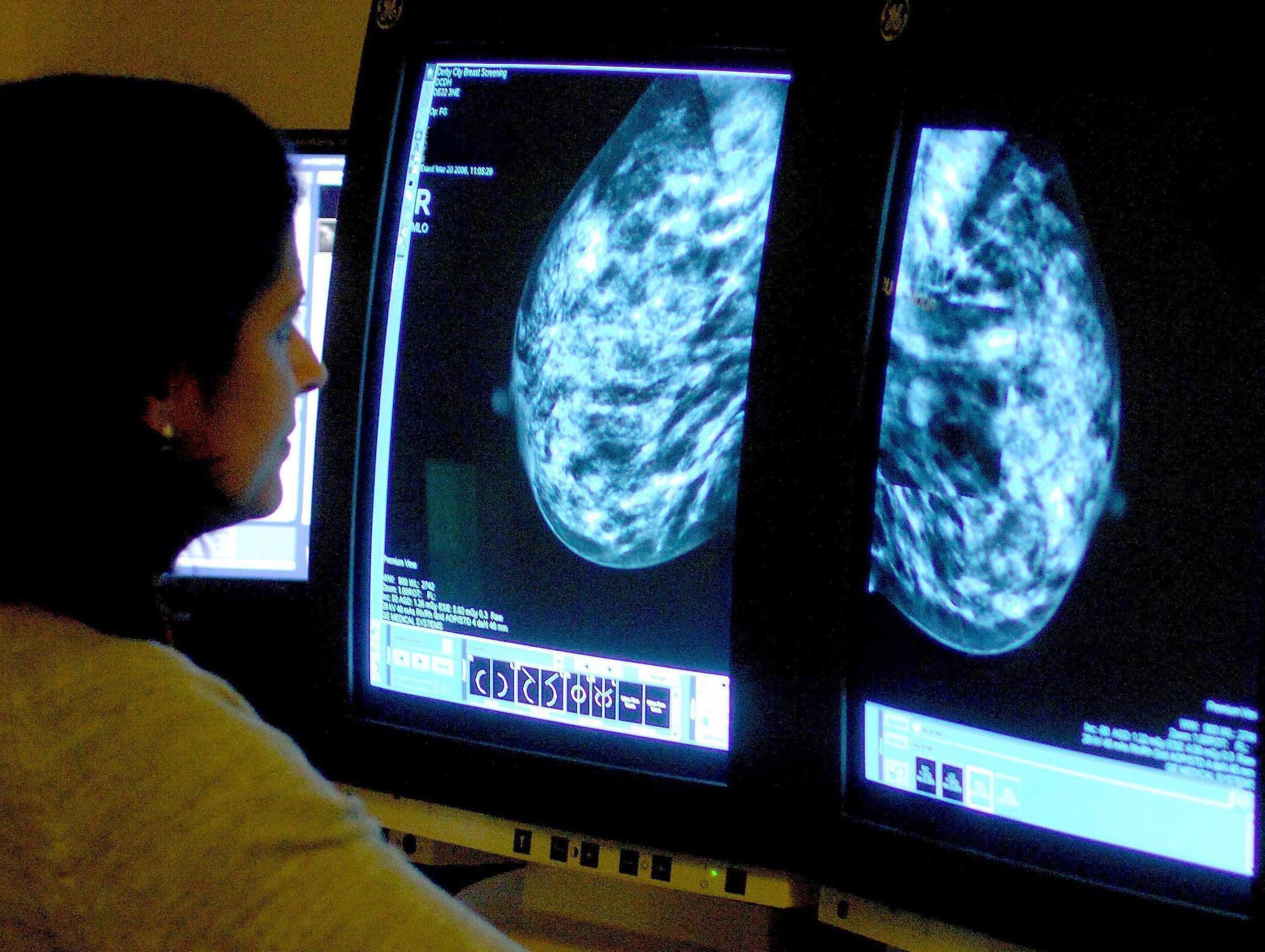10,000 fewer patients began breast cancer treatment over past year, study shows
Majority of ‘missing’ breast cancers are early stage disease, meaning they are usually more treatable

Your support helps us to tell the story
From reproductive rights to climate change to Big Tech, The Independent is on the ground when the story is developing. Whether it's investigating the financials of Elon Musk's pro-Trump PAC or producing our latest documentary, 'The A Word', which shines a light on the American women fighting for reproductive rights, we know how important it is to parse out the facts from the messaging.
At such a critical moment in US history, we need reporters on the ground. Your donation allows us to keep sending journalists to speak to both sides of the story.
The Independent is trusted by Americans across the entire political spectrum. And unlike many other quality news outlets, we choose not to lock Americans out of our reporting and analysis with paywalls. We believe quality journalism should be available to everyone, paid for by those who can afford it.
Your support makes all the difference.Over 10,000 fewer people started treatment for breast cancer in England since the beginning of the coronavirus pandemic compared to the previous year, a new study shows.
The majority of these “missing” breast cancer cases are early stage disease, which are usually more treatable, according to Cancer Research UK.
The charity estimates that about 10,600 fewer breast cancer patients have started treatment – making up more than a quarter of the total 38,000 cases of “missing cancers” in the last year – due to the pandemic interrupting services.
Breast cancer is the most prevalent type of cancer in the UK and the disease claims around 11,500 women’s lives every year. While one in seven women in Britain will develop breast cancer at one point in their life – with one woman diagnosed every 10 minutes.
Deaths from breast cancer fell to an all-time low before the pandemic, but experts fear these new statistics mean this hard-won progress could be in jeopardy.
The pandemic massively disrupted breast cancer services after the NHS breast screening programme was effectively paused for several months. Routine invitations for breast screening only resumed after the first wave of the pandemic and many of these missing cases are likely to be cancers that were not picked up in screening.
Many women also put off seeking help for symptoms for fear of catching Covid-19 as well as not wanting to overwhelm the NHS and instead stayed at home, Cancer Research UK added.
It is urging women with symptoms to come forward and consider screening when invited.
But it also said the NHS needs the capacity to treat these women when they do enter the system.
Michelle Mitchell, Cancer Research UK’s chief executive, said: “These figures are worrying, and we could see progress slow over the coming years as the true effect of the pandemic is revealed.
“The NHS is showing signs of recovery, but a huge effort is still needed to clear the cancer backlog as quickly as possible to help avoid preventable cancer deaths as a consequence of the pandemic. Government must make sure there is enough funding for staff, diagnostic equipment and the research needed to improve cancer care across the UK in the long term, so cancer patients are given the best chance of surviving their disease.”
Professor Charles Swanton, Cancer Research UK’s chief clinician, said: “Considering the huge disruption to cancer services, sadly, these figures are not surprising. And we’re seeing the impact of effectively pausing breast screening which detects almost a third of breast cancer cases.
“But it’s important to remember that cancer screening is for people without symptoms, so it’s vital that if people notice anything usual for them, please don’t wait for screening – get in touch with your GP. In most cases it won’t be cancer, but if it is, catching it early gives the best chance of survival.”
Join our commenting forum
Join thought-provoking conversations, follow other Independent readers and see their replies
Comments